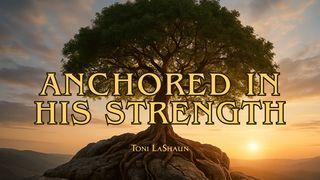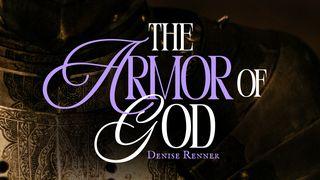Freedom Through Forgivenessنموونە

Forgive The Other Person
This is the part that most people want to get to. When we deal with forgiveness, most of the time, a picture of the person who hurt us comes to mind. Everything I have said up to this point leads to this.
Before you can forgive the person who hurt you, as we mentioned earlier, you need to understand that forgiveness is a decision that leads to action. Forgiveness is not blame, ignoring the problem, a feeling, or trust. It is something you decide to do. And you need to learn how to forgive yourself if you are going to forgive others. Let’s dive in.
How Do You See the Person That Hurt You?
"For we do not wrestle against flesh and blood, but against the rulers, against the authorities, against the cosmic powers over this present darkness, against the spiritual forces of evil in the heavenly places." - Ephesians 6:12 ESV
You may not want to hear this, but it's the truth anyway: what they did to you is not entirely their fault. Yes, they are responsible for their actions, but the problem started way before them. The devil is at the root of all evil. He is the one who brought it into this world. Adam and Eve opened the door, but the enemy is who brought it in.
You must remember that the devil is the ultimate enemy here. It's the same reason that you have hurt people in your past. You may not have been as intentional or malicious, but we all have hurt others with our words, actions, or even negligence.
Their Past Affected Their Future
There is no coincidence in certain statistics. Most men who are abusive came from abusive homes. Women who grew up in an abusive home often choose a spouse who's abusive.
Children who grew up in dysfunction often keep the same habits and create dysfunctional homes.
Everyone has a past that was unhealthy in some way. Parents are not perfect. Most people don't deal with the trauma of their past in a healthy way. So if they don't deal with it, they will pass the unhealthy habits down to their children, and the cycle continues. Sometimes, the cycle is carried out in habits that most people don’t see as destructive.
The Person That Hurt You Deserves Forgiveness
"For all have sinned and fall short of the glory of God …" - Romans 3:23 ESV emphasis added
There have been deep studies about the word "all." Many very smart people took the time, energy, and effort to look up the real meaning of all. At the end of it, they said, "All means all!"
We see again that everyone on this planet has sinned. Some may have stayed in their sin longer than others, but still, everyone has sinned—including you. This doesn't mean that you deserved what happened to you, but it does mean that everyone makes mistakes. And the person who hurt you has made some mistakes, and you, unfortunately, were the receiver of the mistakes.
"For God so loved the world, that he gave his only Son, that whoever believes in him should not perish but have eternal life." - John 3:16 ESV
The word "whoever" also means all. It means every person who has existed. God, in His love, grace, and mercy, decided that there is no sin, no mistake, that He won't forgive. That includes the sins that hurt other people. The reason "love your neighbor as yourself" is a commandment in the New Testament is that God knew many of our mistakes would ultimately harm others.
I know you have been hurt, but if God sees fit to forgive someone for what they did to you, Him, and what they did to you, you must do the same. Remember, if you and God disagree, who is the one who needs to make the adjustment? It’s not God—it's you.
Another Aspect of Pain
Just like you are dealing with the pain of the issues that have happened to you, the person you need to forgive is dealing with the pain of the issues that happened to them. Most people are unsure of how to cope with that pain. My friend David Taylor said, "Humans by nature are pain-avoiding, pleasure-seeking creatures." This is true. However, not every pain is meant to be avoided. When it comes to growth, there are some painful lessons we learn—but the main point is that we learn from them.
I like to work out (most of the time). Sometimes, after a good workout, you may experience soreness in your body that can be quite painful.
However, this pain is considered a "good pain" because my body is working to repair muscles. It doesn't feel comfortable, but when done properly, you will be stronger in the end. Pain in our emotional lives is the same. Sometimes, we must do work that is initially uncomfortable in order to achieve better health in the long run.
They Didn't Deal with Their Pain
The person who has hurt you is dealing with pain too. It doesn't excuse what they did, but it does shine light on the reason why. If someone doesn't have people in their life to point out different behaviors they are engaging in, they often won't see their own issues.
Forgiving Them Does Not Make It Ok
I have and will continue to mention this trend of thought throughout the devotional. Forgiving the person who offended you does not mean that what they did was ok. Forgiving them does mean that what they did no longer has control over you. The pain and some of the results may still be there, but the control is gone.
Forgiving the offender also means that they no longer have control over you. There is a future available through forgiveness that allows you, when they walk into a room, not to be as affected emotionally by what they did. Eventually, all the thoughts that used to come will go away.
We strengthen the thoughts that we focus on, and eventually, those thoughts will control us.
Think About What You're Thinking About
What we think about matters. Every action that we do is first a thought. Sometimes the actions are not well thought out, but still, it was a thought. Our actions are a display of our thought life. Our actions serve as a scoreboard of which thoughts are winning in our minds. If you choose to always think about pain, you will strengthen those thoughts, and those thoughts will lead to more pain.
If you focus on thoughts of forgiveness, healing, and moving forward, you will eventually move forward. This doesn't mean that you will never have a negative thought about what you went through; it simply means that the predominant thoughts are those about forgiveness and healing. Those are the thoughts that we need to focus on.
Forgiveness doesn't make what they did ok; it just sets you free. Freedom to move forward in life in a healthy manner is always better than being trapped in the prison of unforgiveness.
Conflicts
There is very rarely a conflict where one person is 100% perfect. Even when we are right, we sometimes handle ourselves incorrectly when we are right. Often, we fall for the "well, they did that, so what I did is ok" mentality. We cannot justify our actions solely based on what someone else did.
The way we receive forgiveness from God directly influences how we forgive others. We learn how to forgive from Him so that we can forgive others.
کتێبی پیرۆز
دەربارەی ئەم پلانە

Forgiveness is a topic discussed at many levels. Some say it is an action you take, while others believe it is a feeling you experience. In this devotional, you will learn what forgiveness is from God's perspective. Your freedom lies on the other side of forgiveness. It is time to forgive and live. - Devon Daniel, Associate Pastor
More









